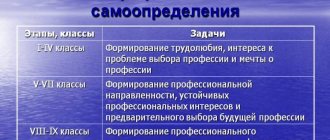In modern sports, the loads become higher and higher every year. According to a number of experts, it is now more difficult to win prizes and set records. Often the athlete performs the tasks set by the coach to the limit of his physical capabilities. Therefore, sports turned to psychological science for help, which should teach the athlete to overcome the stress factor in important competitions. Today we will tell you in detail why you need psychology of sports, we will also consider the main areas of work of a sports psychologist, which he carries out in teams.
History of sports psychology
It must be said that sports psychology is a fairly young science, it arose at the beginning of the 20th century. According to most researchers, the history of sports psychology is inseparable from the modern Olympic movement. One of the first to speak about the need to study the psychology of sports was the famous Pierre de Coubertin. The official year of origin of this discipline is considered to be 1913, when an IOC conference was held dedicated to the issues of psychological preparation of an athlete.
Since the 20s of the last century, the first scientific experiments in this area took place in Germany and the USA. But at that time there was no clear understanding of what a sports psychologist should do. A deeper understanding of this discipline emerged after World War II. The development of this area of science was facilitated by the growing popularity of sports. In the 50s, methods of working with athletes were developed, and the first serious studies appeared.
An important date in the history of sports psychology is 1965, when the first congress on this topic was held in Rome. He gathered many guests from all over the world who came to discuss issues of sports psychology. As a result, the meeting participants agreed to create their own association. Thanks to their efforts, the International Society for Sport Psychology (ISSP) was born in the same year. Five years after this, the organization’s printed organ, the International Journal of Sport Psychology, began publishing.
Sports psychology is actively developing, and research in this area is carried out by most countries of the world. According to experts, about 3,000 people from dozens of countries are employed in the field of sports psychology.
How did domestic sports psychology develop?
If we talk about the development of this discipline in our country, it should be said that Soviet researchers kept up with the times. Domestic sports psychology began to work in this direction back in the 20-30s of the last century. In this regard, it is necessary to name the names of such researchers as P.A. Rudik, T.R. Nikitin, A.P. Nechaev, A.Ts. Puni, Z.I. Chuchmarev. For example, back in 1927, a book by Professor A.P. was published in Moscow. Nechaev “Psychology of Physical Culture”, which immediately aroused interest both in our country and abroad. In 1930, this work was republished. In it, the author pointed out the importance of physical activity not only for physical health, but also for the formation of personality.
An important milestone in the development of domestic sports psychology was 1952, when A.Ts. Puni was the first in the country to defend a dissertation on this topic.
Since the 30s, methods of psychological work with athletes have been actively developed at the GDOIFC named after. P.F. Lesgaft, in Leningrad. It was there that the first methodological programs for teaching this discipline were created. Let us add that on the initiative of this institute, the first meeting was held in the USSR in 1956, at which issues of psychological support for sports were discussed. After this, such events began to be held regularly.
What does modern sports psychology do?
Speaking about what modern sports psychology , first of all we should mention the research function. Specialists who work in this field can become scientists and study athletes. For example, they can analyze the impact of a bodybuilder's training on anxiety levels, and study the motives that make an athlete become a champion. Scientists present their findings at conferences and publish them in the form of scientific papers, textbooks and books for a wide range of readers.
The second function that these specialists perform is training . Many sports psychologists work at universities where they lecture. Moreover, they can provide knowledge in this specialty to both athletes and future psychologists.
The third function is advisory . The services of sports psychologists are used by both state sports organizations, sports teams, and individual athletes.
Of course, in this regard, today a specialist who has received a diploma in sports psychology has enormous opportunities. Every year the level of training of athletes increases, and athletes are given more and more complex tasks. To set a record or win a prize, the trainee has to mobilize all his strength - both physical and moral. And therefore, the role of the modern psychologist in sports cannot be overestimated.
A specialist in this profile can work with a team and improve the psychological climate in it. Also within his competence is the study of issues of interaction between an athlete and coaches, judges, fans, and journalists. Of course, wherever a sports psychologist works, his main goal is to help the athlete achieve high results.
The main tasks of a sports psychologist
Anyone who dreams of getting an education in this specialty should know the main tasks of a sports psychologist:
- psychological support for athletes;
- preventing and overcoming conflicts that arise in the sports environment;
- assistance in shaping the personality of athletes.
Today, boys and girls who have chosen the profession of sports psychologist solve a variety of problems. Some of them work with high-class athletes - they conduct psychotrainings, teaching special techniques that mobilize mental reserves. Others try to help disabled people in their desire to engage in sports and physical education. Still others find themselves in the field of youth sports.
So, sports psychology is a branch of psychological science that studies people who train and compete for medals. Sports psychologists are looking for ways to overcome anxiety and stress during competition. There are also other tasks of sports psychology. For example, this science is interested in how the state of anxiety affects the accuracy of a basketball player’s throw. How will the coach's punishment affect the team's morale? Can self-confidence help you learn to swim or skate?
Note that this science is interested in the influence of psychological state on sports performance. On the other hand, it is important for her to understand how physical activity affects the condition of athletes.
Exercise reduces oxidative stress
Oxidative damage to the brain can result from toxicity within the brain itself. In humans, oxidative stress is believed to lead to a number of adverse conditions, including: Parkinson's disease, Alzheimer's disease, chronic fatigue syndrome and even cancer.
To reduce oxidative stress and prevent it from damaging the brain, it is recommended to exercise. Research shows that in rats that have experienced oxidative damage, aerobic exercise such as swimming helps restore the brain and improve overall cognitive functioning. []
Areas of work of a sports psychologist in a team
Many people are interested in how such a specialist can be useful to a specific sports organization or team. In this regard, it is necessary to name three areas of work of a sports psychologist: diagnosis, training, influence . The first of them concerns the analysis of the athlete’s behavior, the study of the properties of his nervous system, and personal qualities. The second area of work of a sports psychologist involves transferring to athletes knowledge and skills that will help them work with their psyche. It is important to teach them to manage their condition so as not to be influenced by external factors, such as the words of rivals or fans. In particular, they teach athletes to conduct independent mental training before competitions.
As for such an area of work as influence, here the psychologist directly works with a team member, setting him up for victory, motivating him. This problem needs to be solved when the athlete is overexcited or, on the contrary, depressed. The main goal of a sports psychologist at this stage is to help the athlete get ready and show an excellent result. We also have to work with those who suffer from depression.
The drug “Nervo-Vit”, , will help strengthen the athlete’s nervous system and prepare for competitions . This dietary supplement not only promotes relaxation, but also fights the destructive effects of stress.
Let us note that a specialist in this profile must have serious knowledge in two areas at once: sports and psychology . He must understand personal, social, family psychology, conflict management, anatomy, physiology, and hygiene. In order to achieve success in this profession, it is necessary to constantly update your knowledge base and have a creative approach to work. It is advisable to engage in some type of physical activity.
Main characteristics of the profession
The characteristics of the profession are visible if you study the pros and cons that it has. Let's look at them in more detail:
- a psychology trainer has the opportunity to choose to work independently or get a job in an organization;
- you should always be ready to learn something new, engage in self-development by studying and putting into practice new techniques;
- beginning psychologists cannot boast of large salaries, but over time they can earn a reputation and gather a client base, which will allow them to increase their income several times;
- There is always moral satisfaction from the work done.
Among the disadvantages, it is worth mentioning the difficulties at the first stage, when you have to overcome your fears and uncertainty, especially if you have to appear in front of a large audience.
Where to become a sports psychologist
In our country, sports psychologists began to be trained en masse just a few years ago. We can say that today this direction has received a second wind. So, let’s name Russian universities where you can get a profession as a sports psychologist. For example, this is taught at the Russian State University of Physical Culture, Sports, Youth and Tourism. The first graduation of specialists in this profile took place in 2013.
In the same year, the first sports psychologists graduated from Moscow State University named after M.V. Lomonosov. The psychology department of the university has a serious methodological base, technological equipment, and many excellent teachers. All this allows us to prepare professional sports psychologists. Let us note that here they learn to help athletes smoothly exit the profession, since most of them finish performing at the age of 35-40.
The traditions of the glorious past are also preserved at the University named after P.F. Lesgaft, where you can also get a profession as a sports psychologist. Today, they train highly qualified specialists who receive extensive knowledge not only in psychology, but also in pedagogy, physiology, and anatomy.
In addition, the profession of a sports psychologist can be obtained at the Moscow State Academy of Physical Culture and some other universities.
To summarize, we can say that the main goal of such a specialist is to teach the athlete to use the capabilities of his psyche in order to show high results . Natural vitamin complexes will help increase the athlete’s performance. For example, the drug "Leveton Forte", created on the basis of herbs and bee products, will help cope with overwork. It also has significant anabolic and antioxidant properties and strengthens the immune system.
Features of the profession
Most often, people go to a psychologist when difficulties arise in life that negatively affect their overall mental state. One of the ways to get out of such a crisis can be helped, according to the Wikipedia resource, by a specialist leading psychological trainings. After all, when you manage to find a professional, you get the opportunity to quickly solve all your problems.
And if in Russia such a service is just gaining popularity, then in the West people have long understood the benefits of this type of activity. Moreover, taking care of your mental health should come to the fore.
A psychologist trainer is engaged in drawing up both group and individual training plans aimed at eliminating psychological barriers and doubts that prevent you from moving forward and developing.
Most often, such training can take place in the form of a game or work activity. All training is a process of communication, during which it is determined what needs to be corrected and how to do it without harming the person himself.
Considering what kind of profession a psychology coach is, it is worth saying that this is a specialist who is well versed in human psychology. Only this will help him in fulfilling his official duties.








